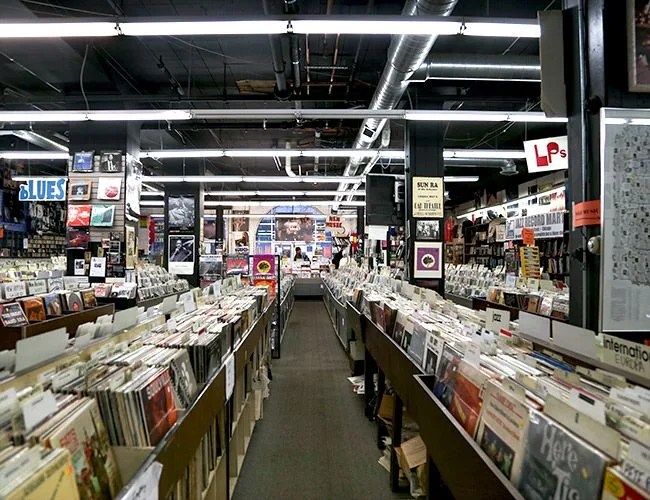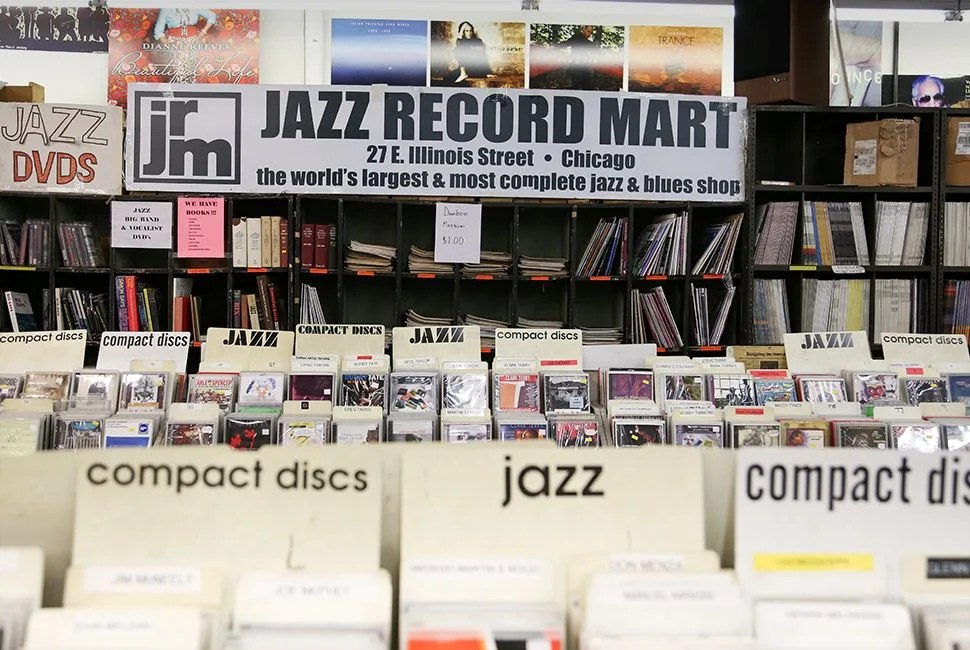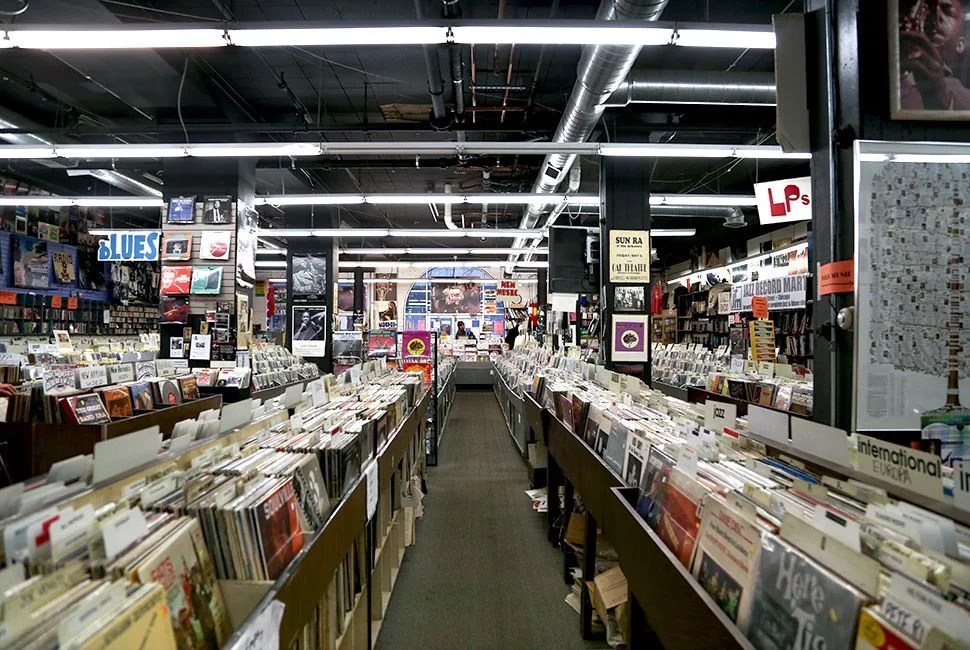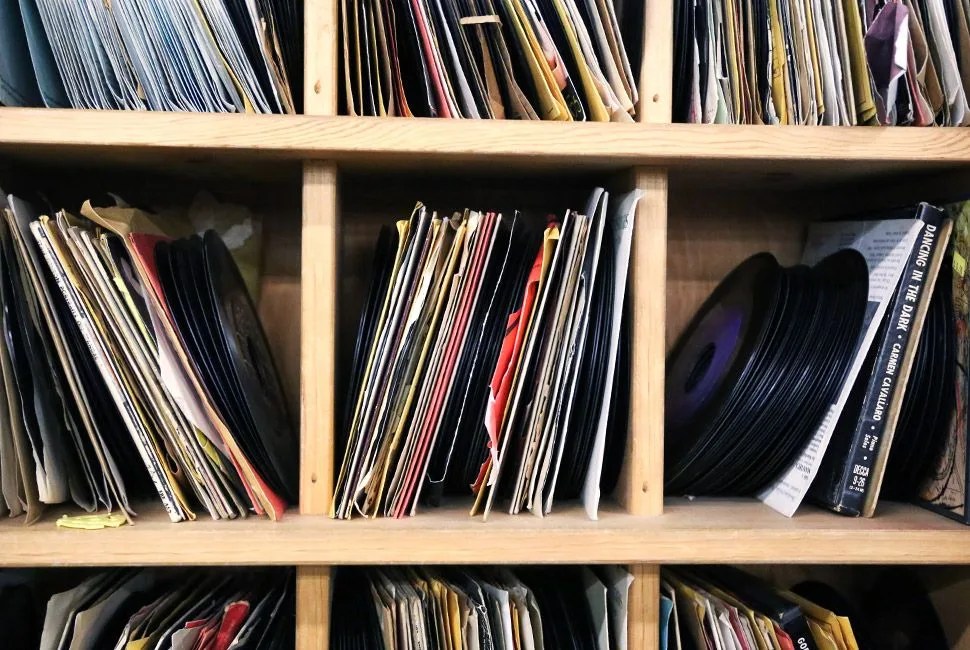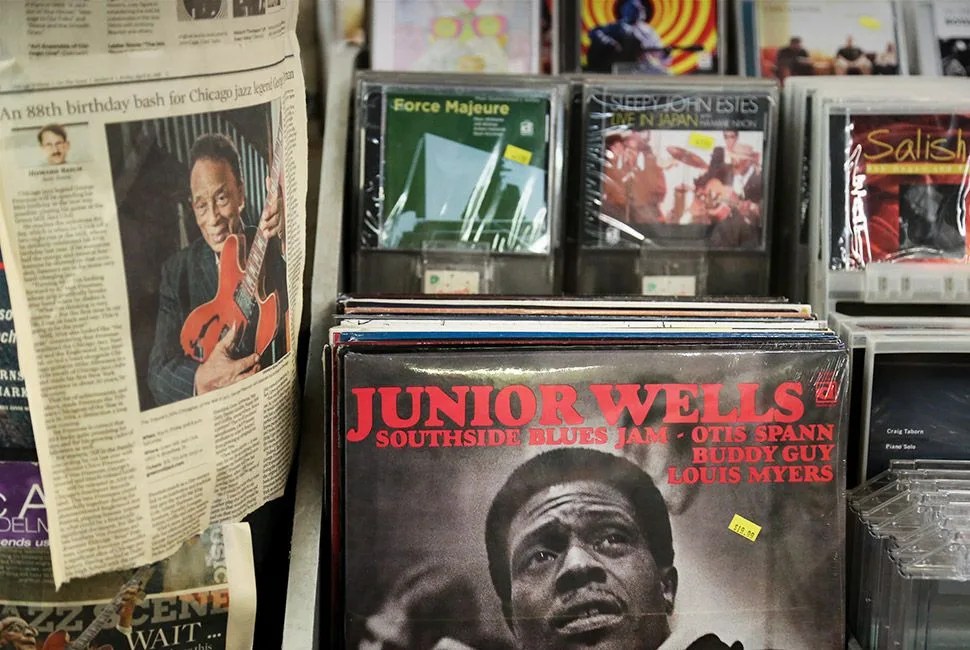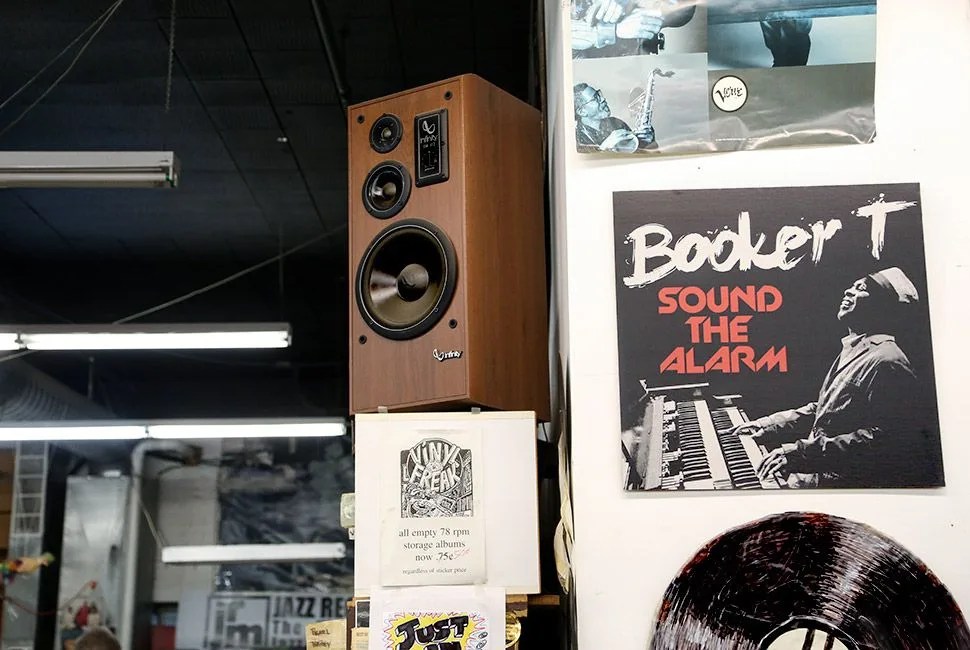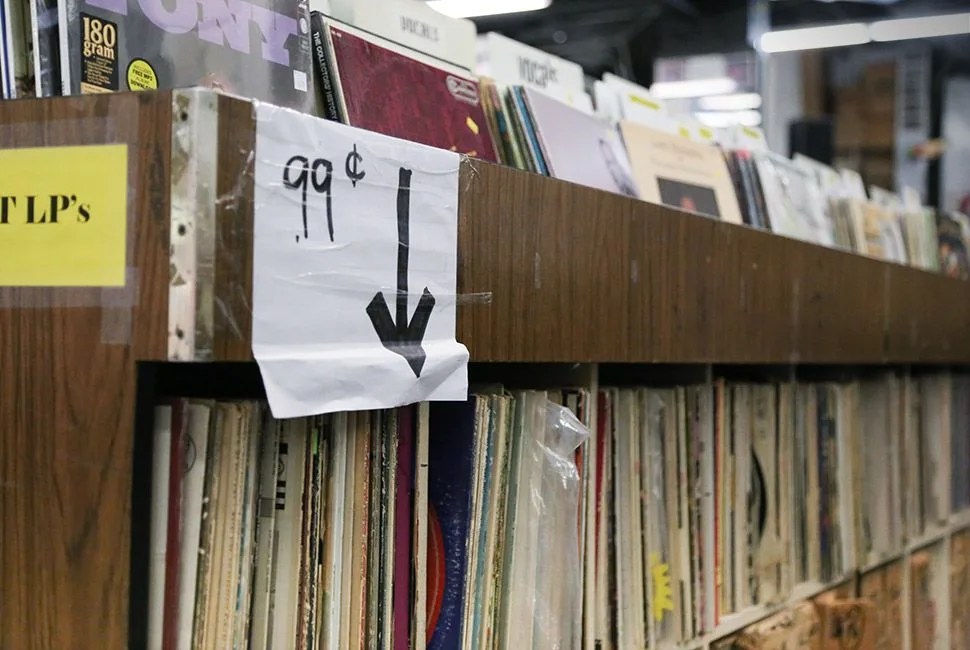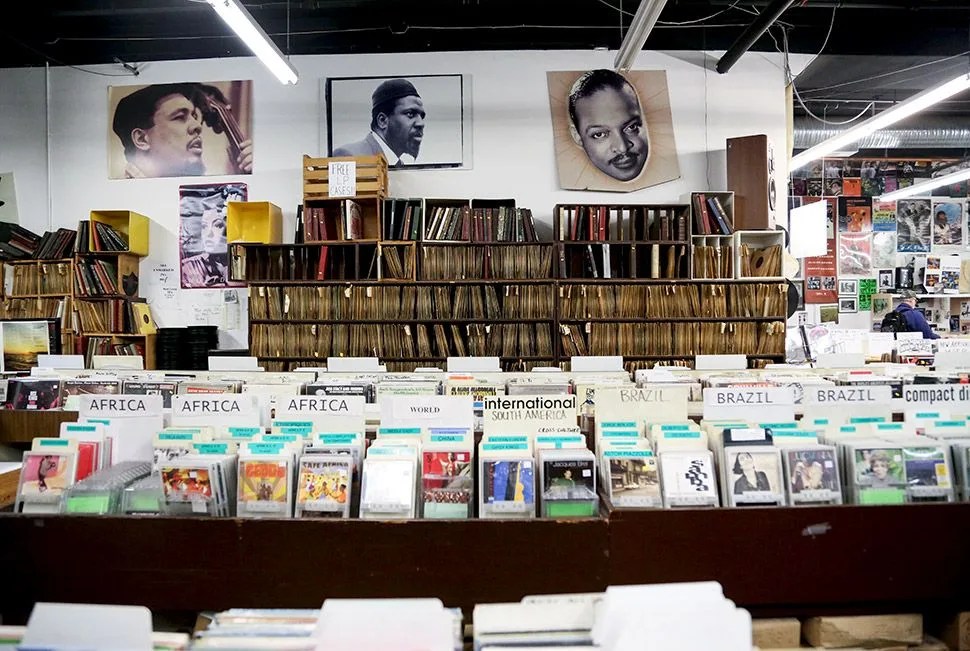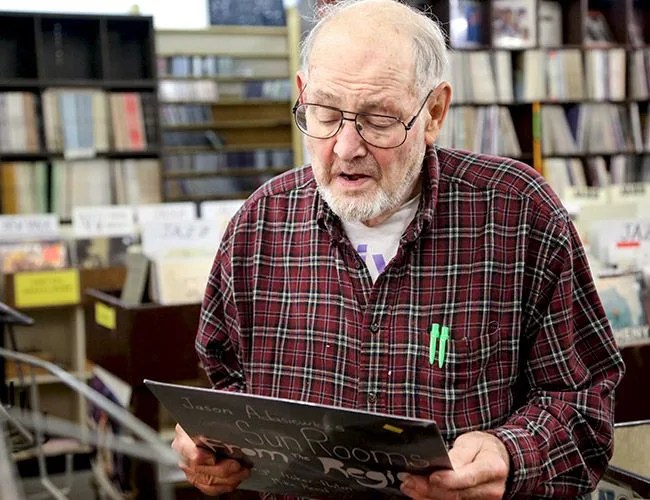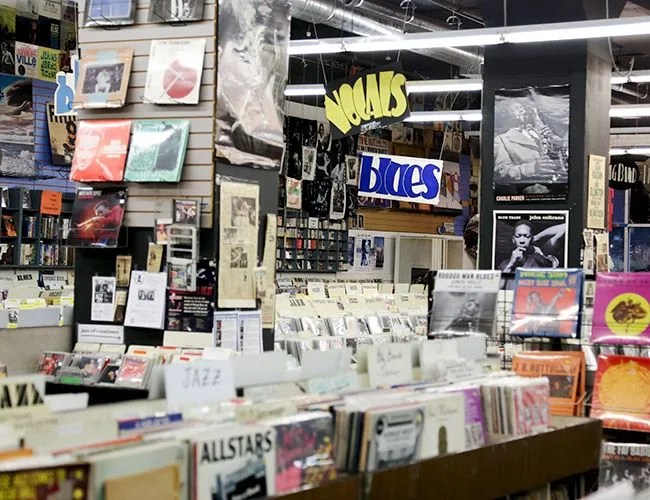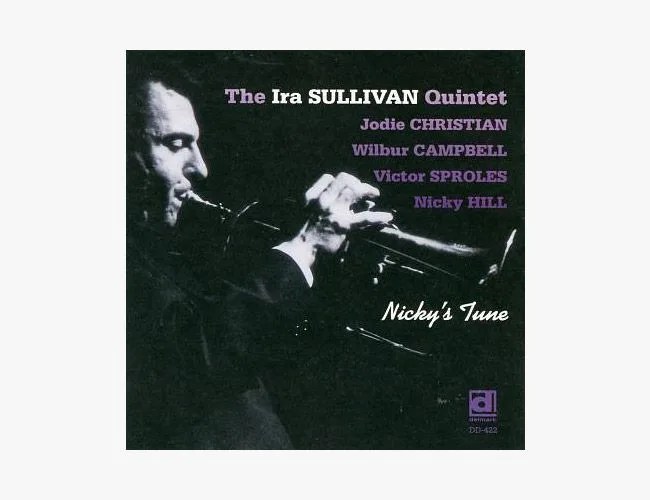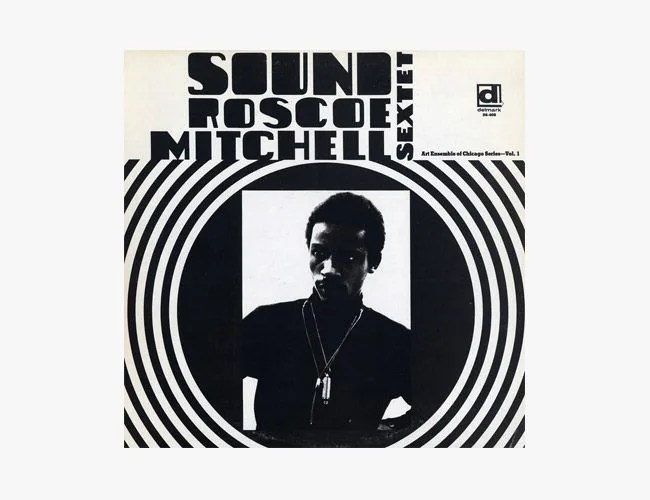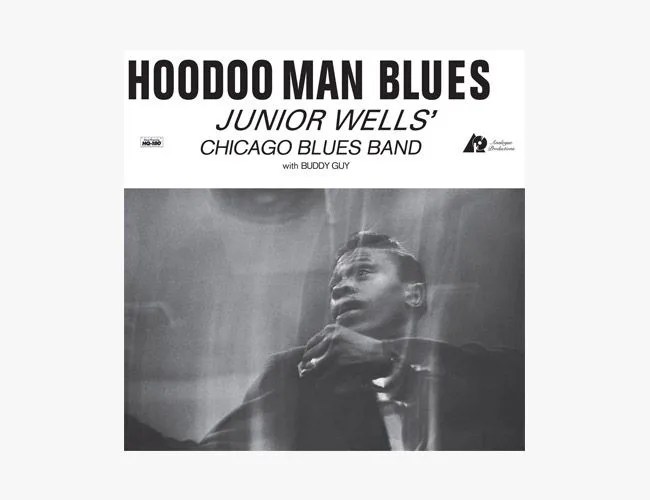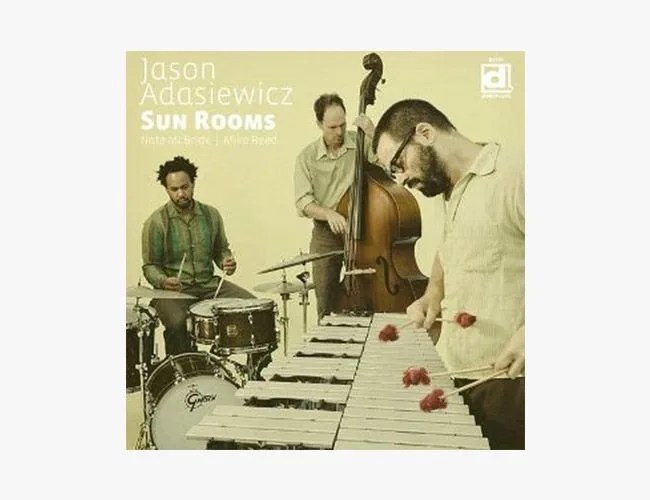8 photos
Too often I saw the jazz section in the record stores of my Midwestern college town relegated to a dusty bin in the corner. I’d pick through polka music or goddamn Lawrence Welk before I’d maybe get lucky and find some decent used big band or bop recordings. Lord help you if you were looking for new jazz music, and, though you’d probably see a brand-new reissue of Kind of Blue among the new vinyl stock (possibly something by Louis Armstrong as well), that made up the entirety of the shiny new jazz LPs.
Someone else can justify that experience as “the hunt” aspect of shopping for records, but as for me, I wanted to explore and fall down the rabbit hole of jazz music and history without wanting for material. 150 miles to the southeast lay my remedy: Chicago’s Jazz Record Mart. Currently located just north of the Chicago Loop, Jazz Record Mart is a mecca of jazz that’s been around since the 1950s.
Though it’s now a Chicago institution, Jazz Record Mart’s roots are in St. Louis, where founder Bob Koester went to school. Koester started by selling old unwanted records from his collection out of his dorm room, then expanded to selling recordings from American Music and Paramount — two labels that weren’t distributed in St. Louis. Using an allowance he got from home, he purchased records, then sold them at the university’s jazz club. Wanting to further his career in the business, Koester moved to Chicago in 1958. With the help of John Steiner (owner of Paramount Records), he bought the existing Seymour’s Jazz Record Mart on Wabash Avenue for $1,500.
“I got seduced by the music, simple as that. I’m glad I didn’t get into filmmaking. I’d have to live in Los-fucking-Angeles.”
Jazz Record Mart bills itself as “the world’s largest and most complete jazz and blues shop.” That’s somewhat difficult to contest, but simply walking into the shop is enough to confirm that both jazz novices and aficionados can find what they’re looking for, superlatives aside. Though Koester’s store is stocked with some albums from modern and classic rock groups, the store’s inventory is overwhelmingly jazz — it’s filled both new and used records and CDs ranging from bop classics like Coltrane, Monk and Davis to world jazz and new releases from lesser-known bands.
Then there are the ancillary attractions — big plastic tubs filled to the brim with old, unmarked jazz 78s, retailing for less than $2. The walls are a shrine to jazz and blues, littered with posters, autographs, records and newspaper clippings. The store carries books and DVDs on jazz as well. And amidst everything stand plenty of proud displays of Delmark records.
